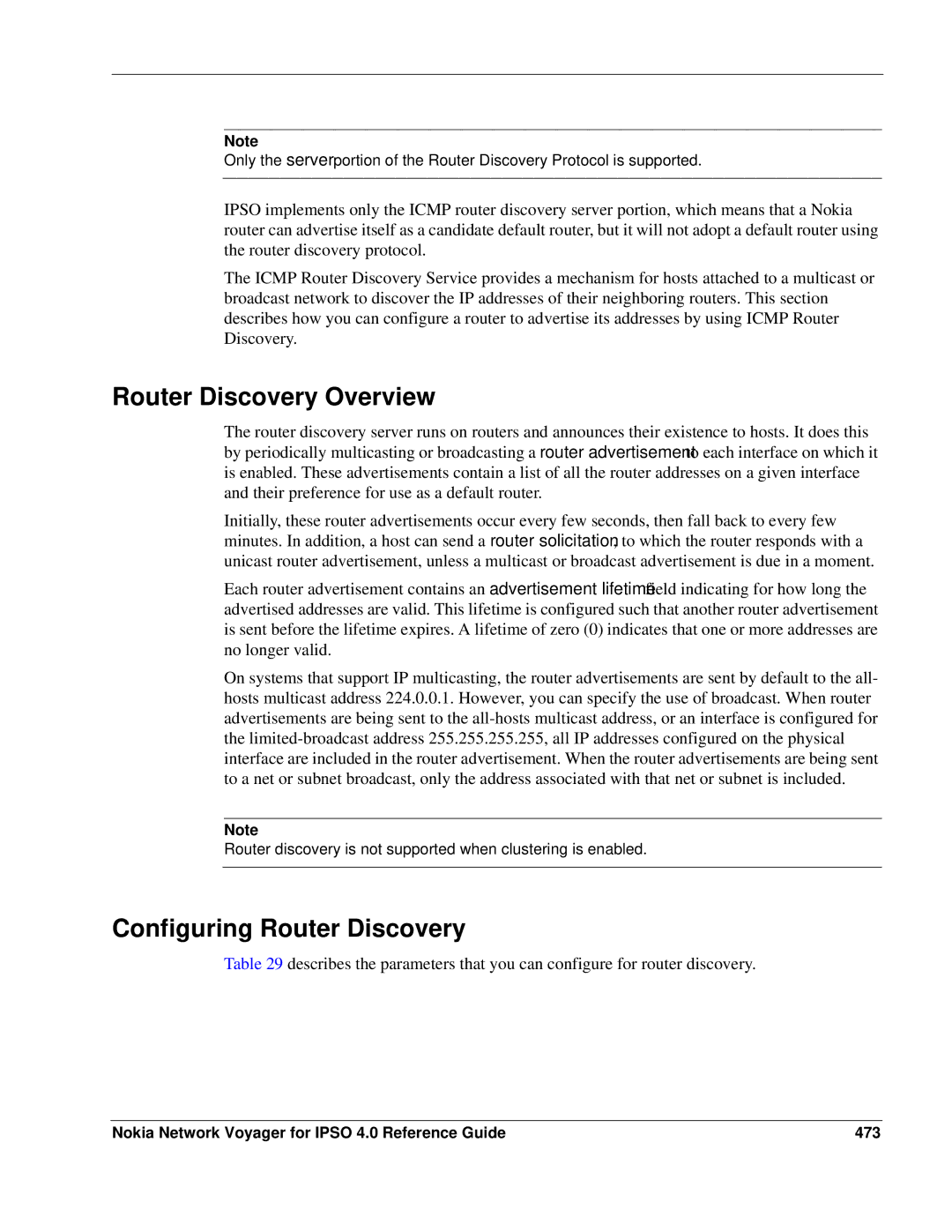
Note
Only the server portion of the Router Discovery Protocol is supported.
IPSO implements only the ICMP router discovery server portion, which means that a Nokia router can advertise itself as a candidate default router, but it will not adopt a default router using the router discovery protocol.
The ICMP Router Discovery Service provides a mechanism for hosts attached to a multicast or broadcast network to discover the IP addresses of their neighboring routers. This section describes how you can configure a router to advertise its addresses by using ICMP Router Discovery.
Router Discovery Overview
The router discovery server runs on routers and announces their existence to hosts. It does this by periodically multicasting or broadcasting a router advertisement to each interface on which it is enabled. These advertisements contain a list of all the router addresses on a given interface and their preference for use as a default router.
Initially, these router advertisements occur every few seconds, then fall back to every few minutes. In addition, a host can send a router solicitation, to which the router responds with a unicast router advertisement, unless a multicast or broadcast advertisement is due in a moment.
Each router advertisement contains an advertisement lifetime field indicating for how long the advertised addresses are valid. This lifetime is configured such that another router advertisement is sent before the lifetime expires. A lifetime of zero (0) indicates that one or more addresses are no longer valid.
On systems that support IP multicasting, the router advertisements are sent by default to the all- hosts multicast address 224.0.0.1. However, you can specify the use of broadcast. When router advertisements are being sent to the
Note
Router discovery is not supported when clustering is enabled.
Configuring Router Discovery
Table 29 describes the parameters that you can configure for router discovery.
Nokia Network Voyager for IPSO 4.0 Reference Guide | 473 |
